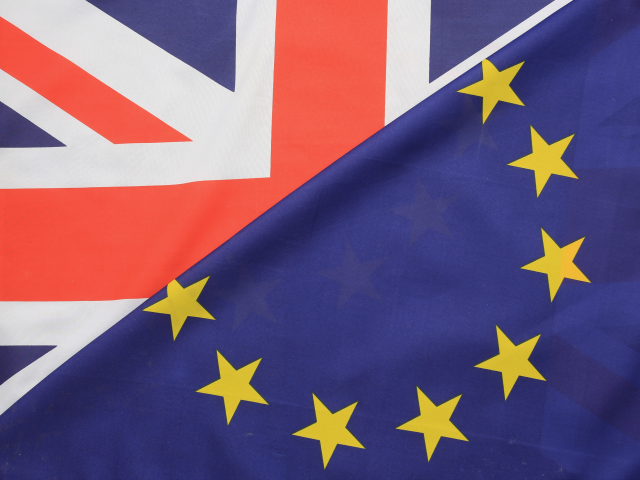British funds appear increasingly to be positioning for the country to exit the European Union, by slashing equity holdings to five-year lows and sharply raising the share of cash and debt in portfolios.
Reuters‘ latest monthly poll of 13 UK-based investors, carried out between March 17-30, also revealed growing anxiety that Donald Trump will win the Republican nomination to run for president in the United States.
With bookmakers shortening odds on a British vote to quit the EU after a June 23 referendum, sterling is on its worst run in eight years as fears grow for trade and economic growth in the event of “Brexit”.
London stocks failed to join global equities’ March rally, rising less than 2 percent.
“A vote to leave will probably have a severe impact on sterling, perhaps some underperformance from FTSE 250 (mid-cap index),” said Sacha Chorley, assistant portfolio manager for Old Mutual Global Investors‘ multi-asset range.
Funds cut global equity holdings by more than 3 percentage points from February to 45.6 percent while raising bonds to 25.1 percent, a six-month high, the poll showed. Cash rose one percentage point to 8.3 percent.
Although investors saw British assets as vulnerable before the June vote, they increased stocks’ weight in portfolios slightly to 29 percent, after last month’s five-point fall.
“The effect on the stock market as a whole would probably be more muted, with the damage more specific in individual companies whose revenues are very dependent on trading with Europe,” said Rob Pemberton, investment director at HFM Columbus.
European equities’ weight rose to 17.7 percent, the highest since September, possibly benefiting from the European Central Bank’s bold easing measures on March 10.
U.S. stocks, however, fell to 21.1 percent of British fund managers’ equity portfolios, a 7 percentage-point drop from February and the lowest since at least March 2011.
While markets cheered this week’s dovish comments from U.S. Federal Reserve chair Janet Yellen, a slow global economy, a strong dollar, volatile oil prices and lacklustre top-line growth at U.S. companies are capping gains.
There is also unease over Trump, whose campaign has featured controversial proposals such as building a wall on the Mexican border, banning Saudi oil imports and slapping tariffs on Chinese imports.
“It is easy to see all markets trembling if The Donald enters the White House,” Pemberton said.
Like fund managers elsewhere, British investors were uncertain about the efficacy of negative interest rates, with little sign so far that they are lifting growth.
“Negative rates pose challenges to banks by reducing profit margins, but they reduce the cost of credit to the general economy, which is what central banks are trying to achieve,” said Trevor Greetham, head of multi-asset at Royal London Asset Management.
(By Sujata Rao; Additional reporting by Claire Milhench, editing by Larry King)

COMMENTS
Please let us know if you're having issues with commenting.